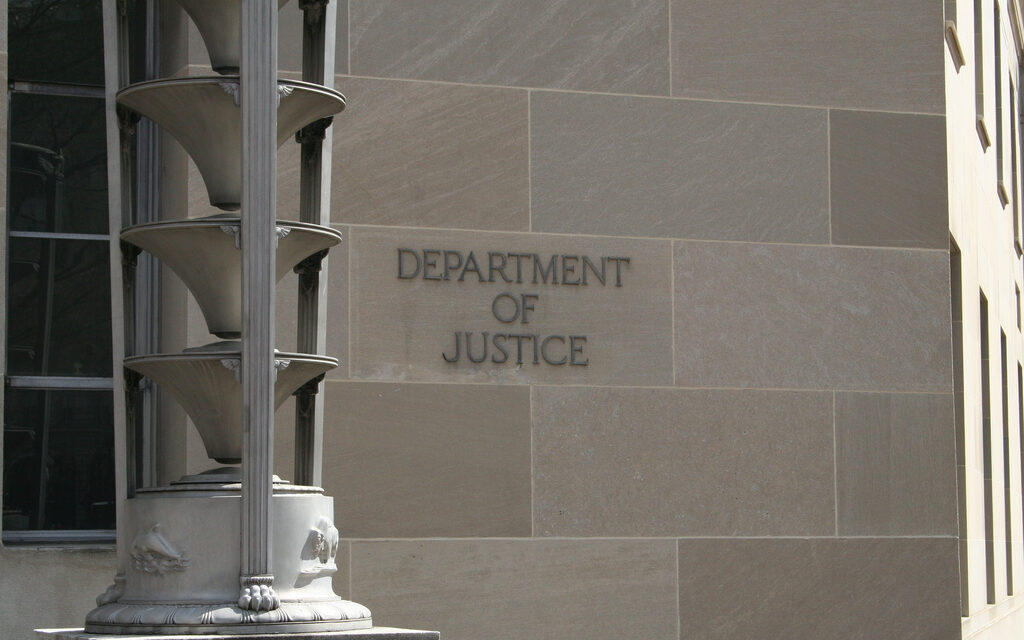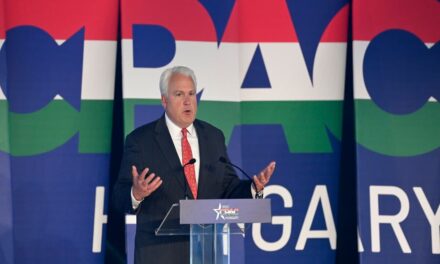In reporting on the arrest of Roger Stone, the New York Times wrote that the indictments “revealed on Friday the most direct link yet between parallel efforts by the Trump campaign and WikiLeaks to damage Hillary Clinton during the 2016 election using Democratic Party material stolen by Russians.” Yet, over at the right-wing blog Powerline, the spin is quite different: “The salient point is that Mueller’s indictment of Stone confirms that the Trump campaign had nothing to do with the theft of emails from the Democratic National Committee or their publication by Wikileaks.”
To put it mildly, Powerline overstates their case. But, to be kind, let’s take their argument seriously for a moment. It’s really comprised of two distinct assertions. The first is that Mueller’s indictments confirm that the campaign had nothing to do with the theft of emails. The second is that the indictments confirm that that the campaign had nothing to do with their publication.
On this first point, there’s nothing in the indictments of Stone that speaks directly to whether or not anyone in the campaign may have had any role in or advance knowledge that the Russians would hack the Democrats. If there is anything exculpatory at all on this front, it’s the revelation that, in October, people at the highest levels of the campaign were reliant on Roger Stone to give them information about what the emails contained and when they might be published. It’s not going to be an adequate defense that Stone wasn’t officially an employee of the campaign at that point, but it does indicate a certain remove from the central conspiracy the Russians carried out to launder the hacked material through WikiLeaks. We could surmise from this that the campaign wasn’t close enough to this scam to be present at its origin back in the Spring.
This is not a safe assumption however, for a few reasons. One is that it’s often the case that one part of a campaign doesn’t know what another part is up to. The Trump campaign had different centers of power that were in constant flux. Jared Kushner was doing things that Donald Trump Jr. and Ivanka knew nothing about. Corey Lewandowski operated one way and Paul Manafort operated in another. When Steve Bannon took over the campaign, the strategy changed again. Jeff Sessions and Sam Clovis were working on the foreign affairs and policy angle, including the deployment of people like George Papadapolous and Carter Page. Michael Cohen was working the Moscow Trump Tower deal and cleaning up all the bimbo eruptions. Roger Stone intersected with some of these operations, but not all of them. He was really operating on his own in most respects.
Related to this, when Paul Manafort was forced out of the campaign in mid-August, he probably took a lot of his operations with him. The Trump campaign lost certain capabilities and contacts that may have left them blind in October.
All we can safely say is that there is nothing in the indictments of Stone that suggest that Stone had any advance knowledge that the Russians would hack the Democrats. On the other hand, we know that George Papadopoulos was informed by Professor Joseph Mifsud on April 26th, 2016 that the Russians had thousands of hacked emails and “dirt” on Hillary Clinton. For some reason, on May 12th, 2016, Fox News contributor Judge Andrew Napolitano was convinced that Russia had 20,000 of Clinton’s emails.
While all of this has been going on, intelligence community sources have reported about a below the radar screen, yet largely known debate in the Kremlin between the Russian Foreign Ministry and the Russian Intelligence Services. They are trying to come to a meeting of the minds to determine whether the Russian government should release some 20,000 of Mrs. Clinton’s emails that it obtained either by hacking her directly or by hacking into the email of her confidante, Sid Blumenthal.
I’ve long suspected that Napolitano was imperfectly reporting what Papadapolous had learned, especially because Papadopoulos was working with contacts Prof. Mifsud had provided in the Russian Foreign Ministry. The Republicans were so obsessed with Clinton’s deleted emails at the time that they assumed this was what had been hacked. Later on, they were equally convinced that their conspiracy theories about the Clinton Foundation would be confirmed. In truth, the hacks weren’t focused on any particular subject matter. The Trump campaign got wind that there were a lot potentially damaging emails in the Russians’ possession long before any of them were released, but they didn’t have accurate information about where they came from or what they contained.
If there was some advance knowledge that the Russians would hack the Democrats, it hasn’t been disclosed yet. It would probably have involved some understanding that originated in 2015 and wouldn’t have been more than an agreement of assistance in return for pursuing goals important to Vladimir Putin. Yet, even if they did not know the hacks would occur, they certainly knew that they had occurred.
In the case of Stone, he appears to have learned about the Podesta hack before anyone else. And, far from keeping it a secret, he actually made an oblique reference to it on Twitter more than six weeks before WikiLeaks published Podesta’s emails. He continued to get information out of the Ecuadorian embassy in London on behalf of the campaign, including about the planned schedule for publications. The campaign sought this information from Stone and told him he had done a great job when the information was eventually released.
One obvious thing to ask the folks at Powerline is why people in the Trump campaign and the president himself have not willingly disclosed this information to Robert Mueller, the Congress, the media or the public. Why is Roger Stone going to jail over a failed effort to cover up something that was innocent or that any campaign would do?
There’s also another sense in which Powerline is thinking about this all wrong. They say, “everyone in the political world, in the Summer of 2016, was trying to find out whether Wikileaks had more DNC emails, and if so, what they contained. There is nothing wrong with what Stone did.”
It’s not just that the Department of Justice is likely to disagree with Powerline about the legal appropriateness of working with WikiLeaks to exploit stolen property obtained by Russian military intelligence. The main problem is the question of compromise and blackmail. Too many people on the right have bought the president’s line that the Democrats are just bitter about losing and seeking excuses for their loss. This investigation has been driven from the beginning by the intelligence community with a lot of buy-in even from congressional Republicans. There are two primary concerns. The first is to discover the truth about what the Russians did so it cannot be easily repeated. The second is to ascertain if the president and members of his administration are willing to do Russia’s bidding to avoid the world learning about actions they took either in business or during the campaign.
Most of what the American people have learned through the investigation was already known by the Russians. They knew what they told Papadapolous. They knew about the meeting in Trump Tower. They knew about the conversations officials had with their ambassador. They knew about the secret meeting in the Seychelles. They had a copy of the contract Trump signed to build a tower in Moscow. They know a lot of things that the Trump administration was trying to hide or outright denying had ever taken place.
Then we look at Trump’s behavior and policies with respect to Putin and Russia, and we have to ask if he’s acting freely or under threat and compulsion. If Trump illegally coordinated with Russia to win the election, that’s a serious offense. But it’s far more serious if he’s acting as president in a way that serves Russia’s interests more than our own. In either case, he should not be in the White House, but it’s more urgent if it’s the latter.
The Stone indictments don’t do too much to advance our understanding of these core issues, but they also do nothing to ease our concerns. They represent more evidence that the administration has something to hide, and that supports the fact that the Russians still have an unacceptable amount of leverage over them.







